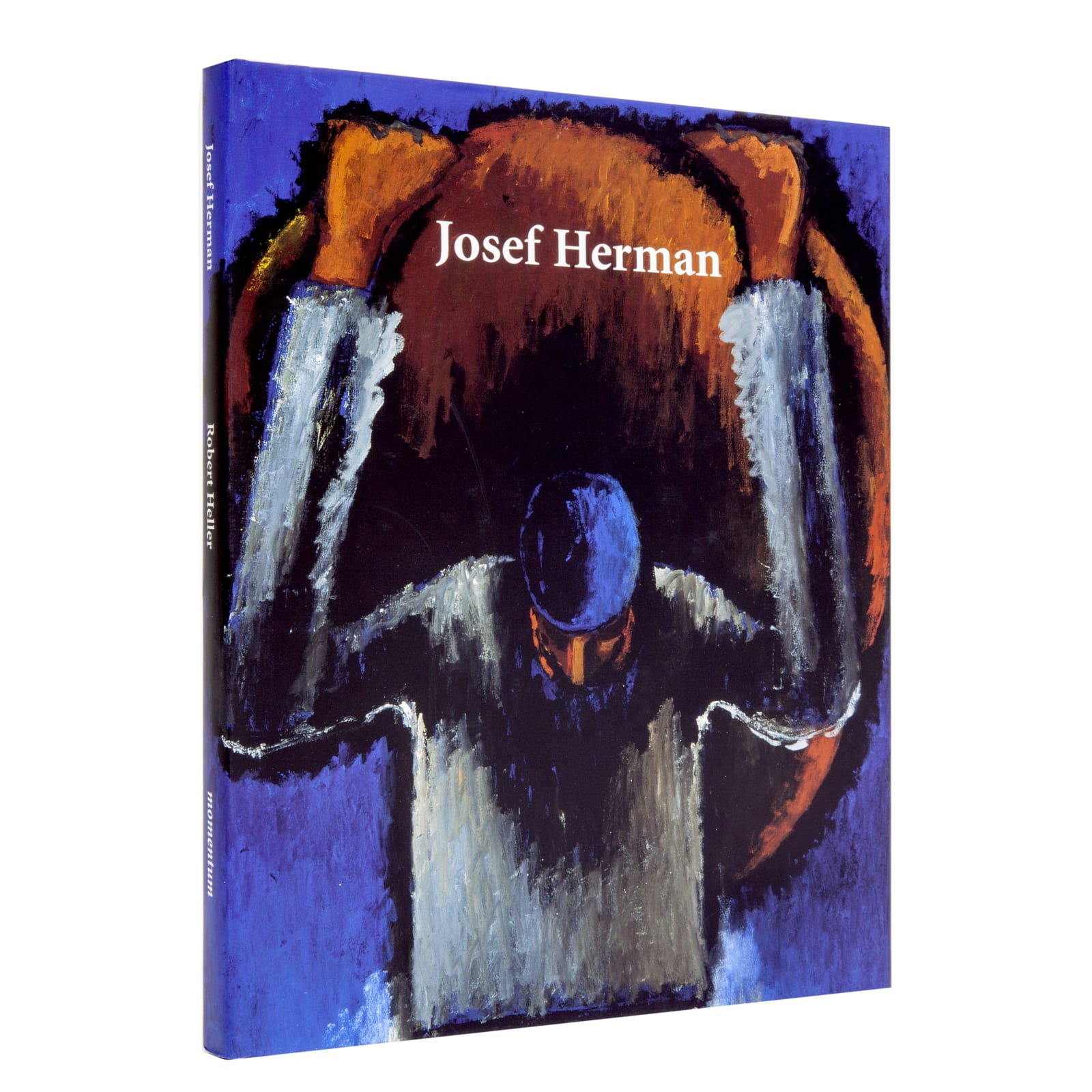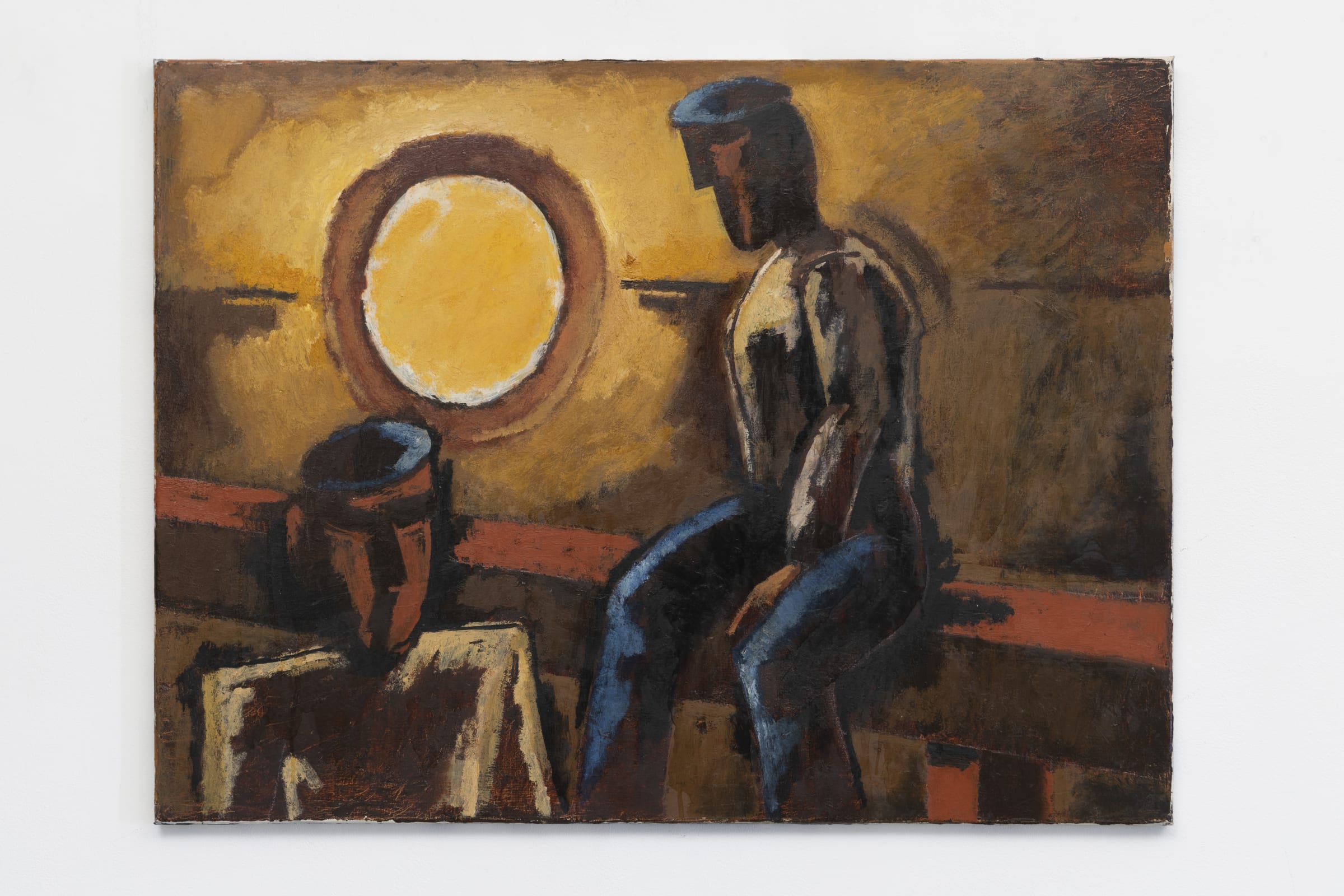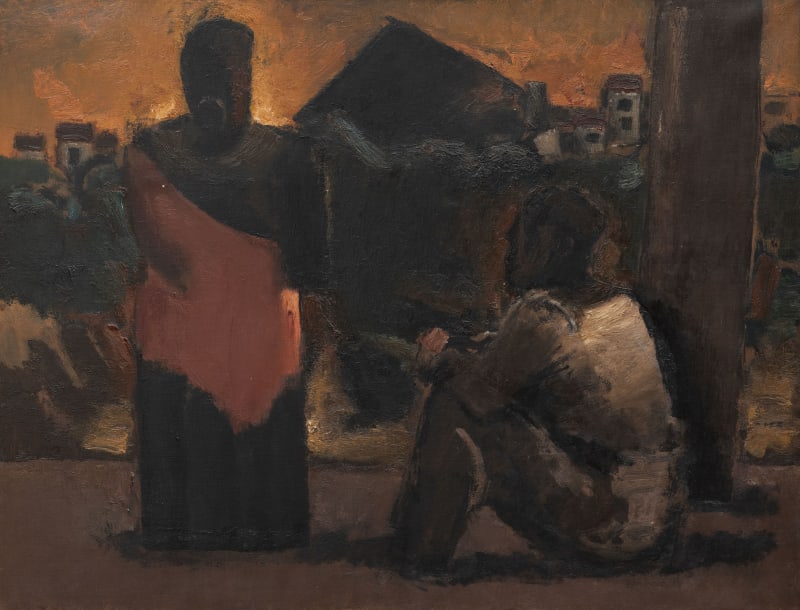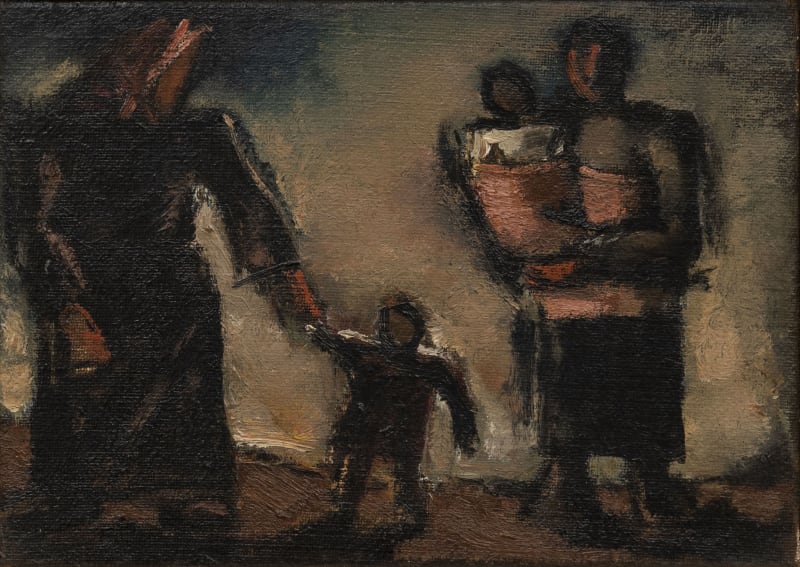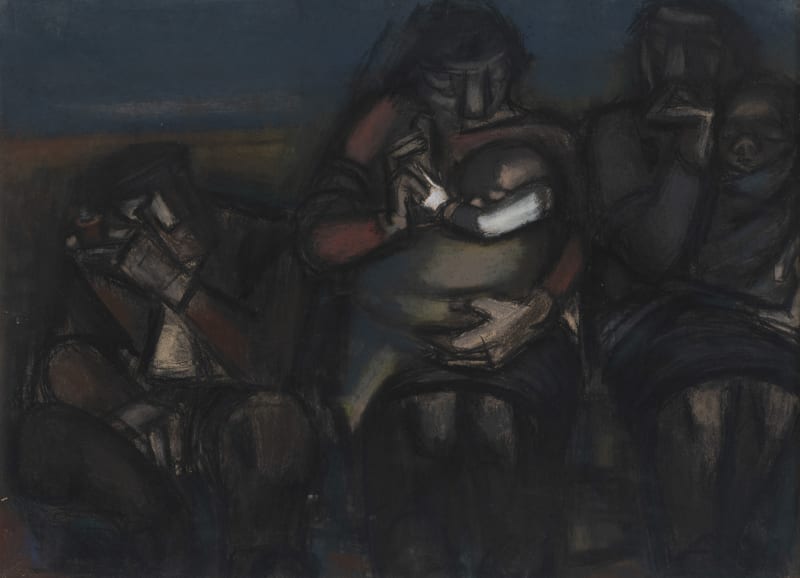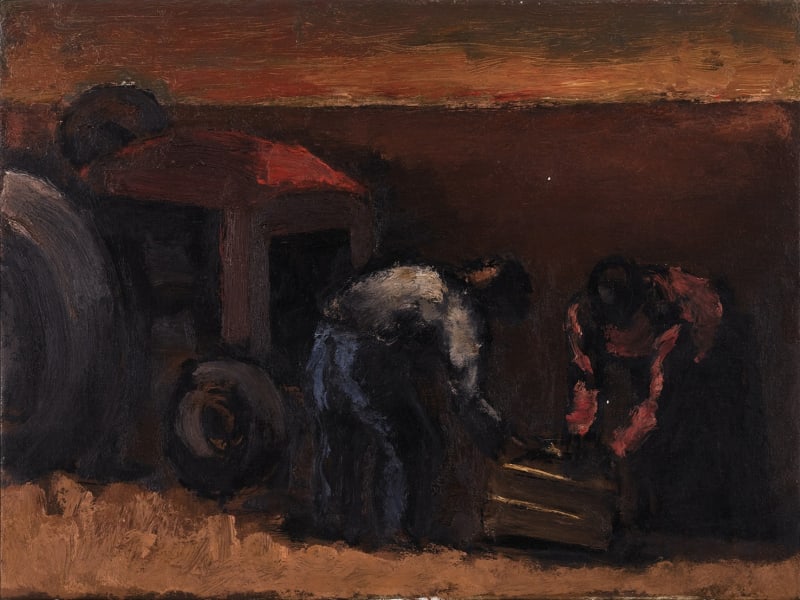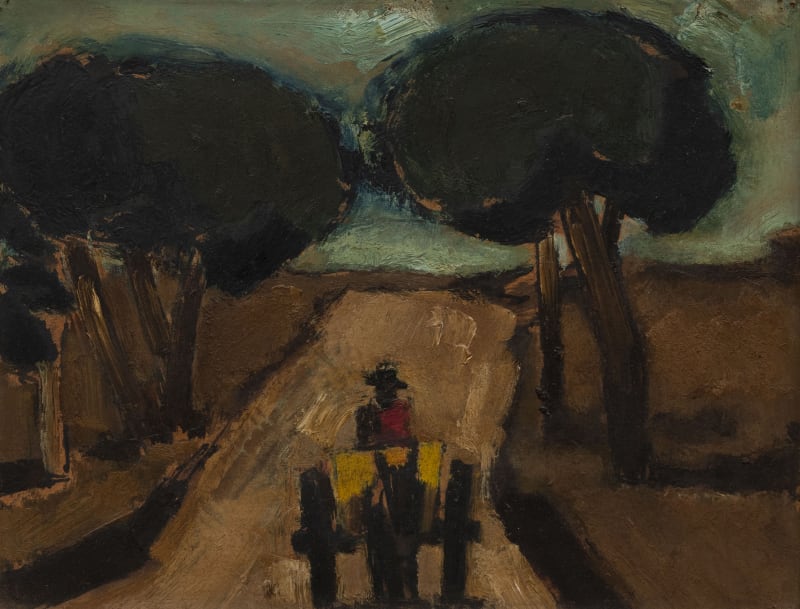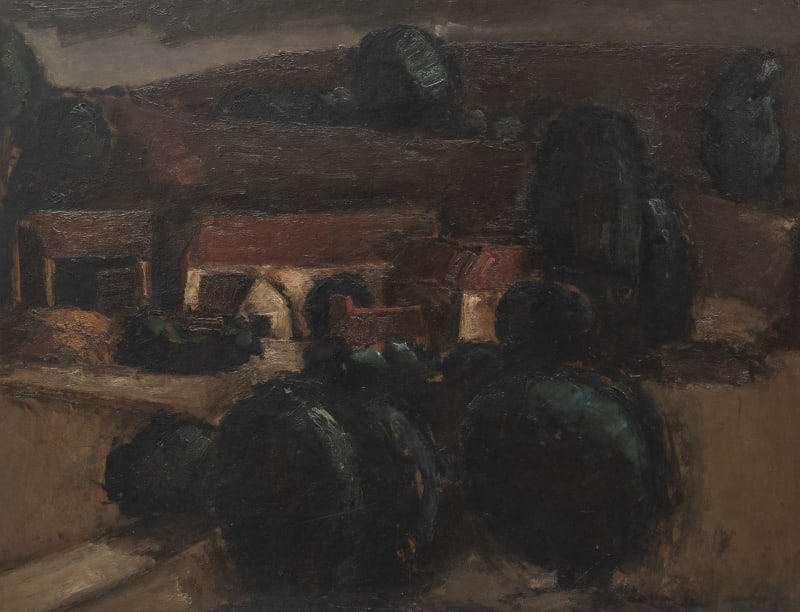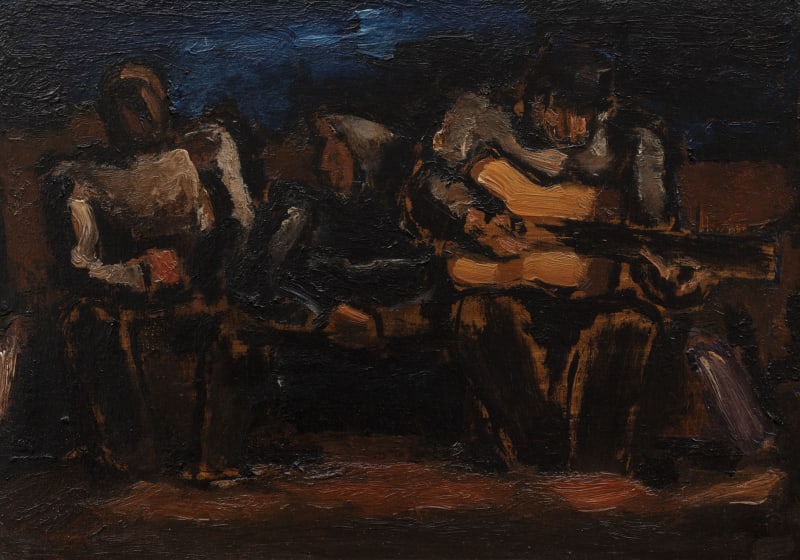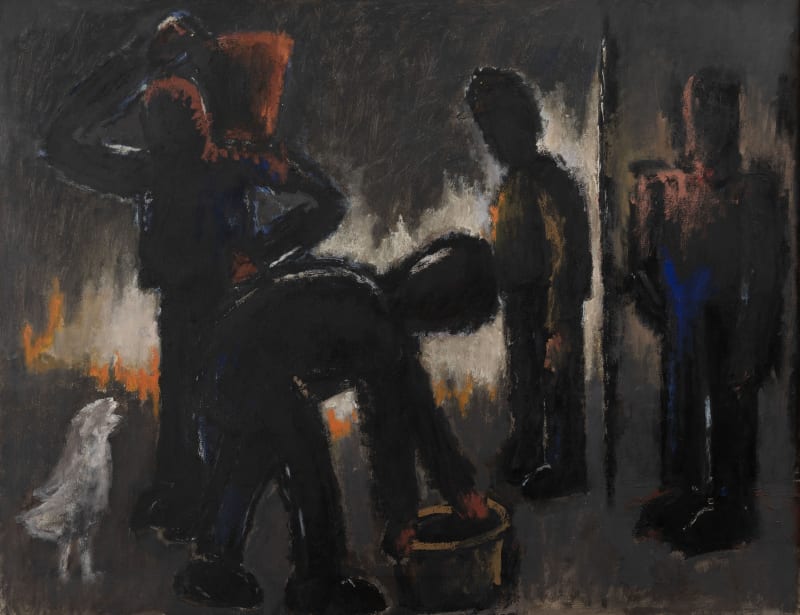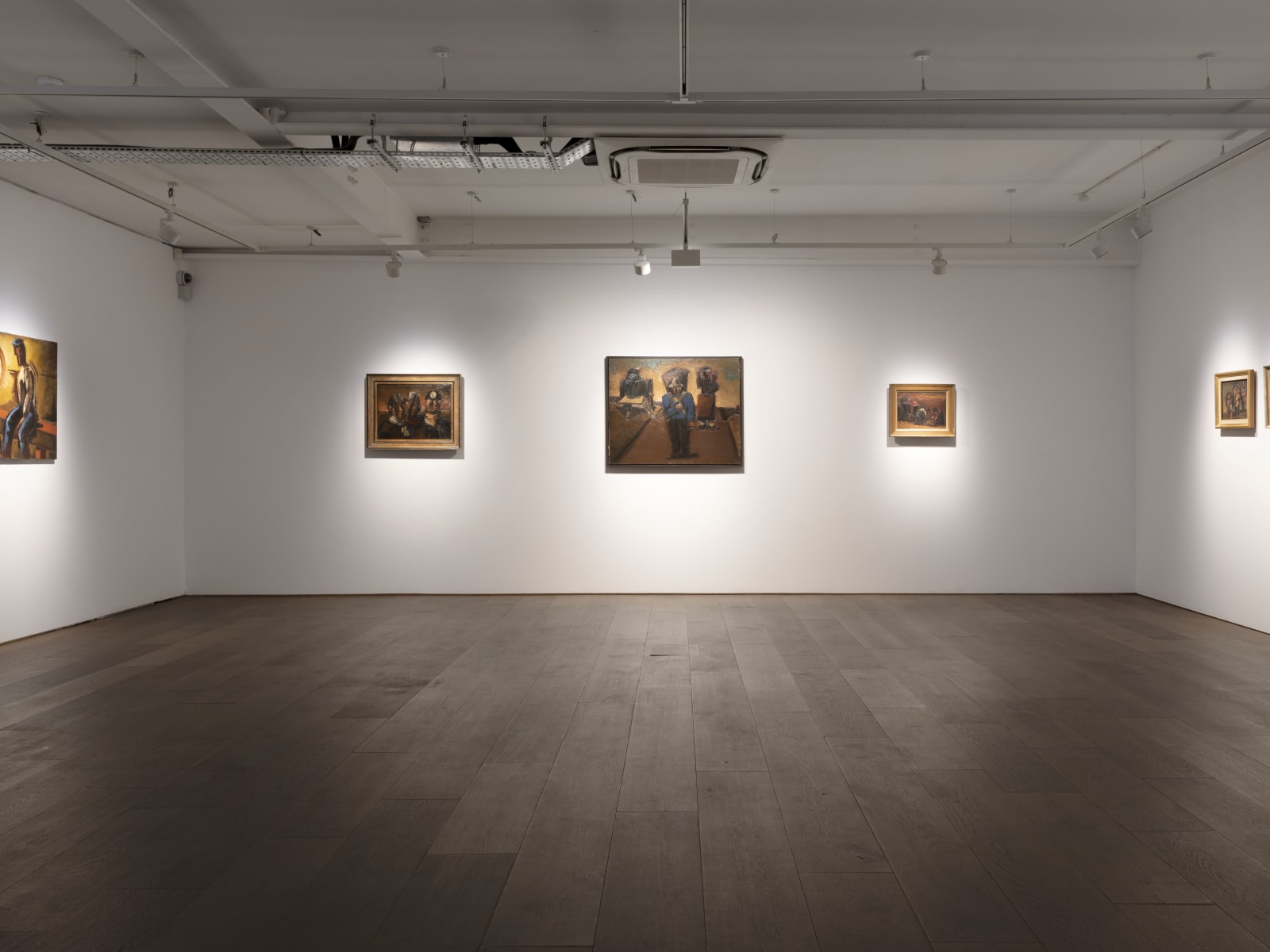Overview
Josef Herman OBE (1911 – 2000) was born in Warsaw to a Jewish family. A highly regarded Polish-British artist, Herman greatly influenced contemporary figurative painting, particularly in the UK, with his transcendent images of coal miners, fishermen and farm workers. In 1938 he left Poland and his family, none of whom he would ever see again, and travelled through Belgium and France before settling in Britain in 1940 during the Second World War.
In the summer of 1944, Herman moved to Wales, an experience that had an enormous impact on his life and work. Describing his first impressions of the mining village Ystradgynlais, South Wales, Herman wrote: “Under the bridge out of a cold shadow trickled the pool of water which got thinner and thinner as it ran on amidst the dry stones and glittering pebbles. Then, unexpectedly, as though from nowhere, a group of miners stepped onto the bridge. For a split second, their heads appeared against the full body of the sun. The whole image was not unlike an icon depicting the saints with their haloes. This image of the miners on the bridge against that glowing sky mystified me for years, with its mixture of sadness and grandeur and it became the source of my work for years to come.... I began working from scratch, as though I had never drawn or painted before."
Supplemented by quotes from Herman’s memoir Related Twilights: Notes from an Artist's Diary, this online presentation explores paintings created in the decades following his arrival in Wales, including several years spent living in or visiting Mexico, Israel, Spain and France.
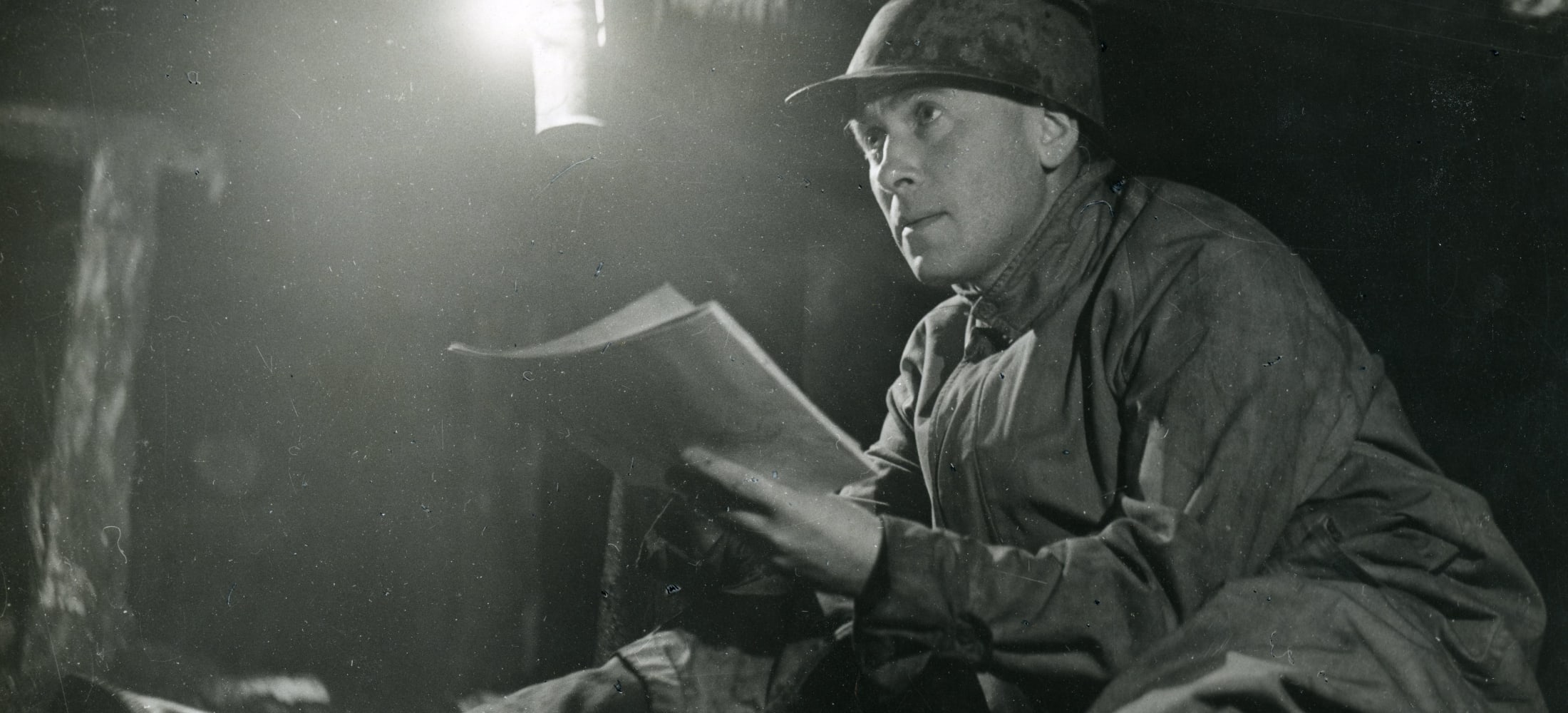
"Sometimes I thought of old Egyptian carvings walking between sky and earth, or of dark rocks fashioned into glorious human shapes, or of heavy logs in which a primitive hand had tried to synthesise the pride of human labour and the calm force which promises to guard its dignity.
It would be true to say that the miner is the walking monument to labour. By this singularity of appearance, amid the clean figures of the shop-keepers, the tall and thin figures of the town councillors, the robust figures of the insurance agents, the respectable figures of the ministers, and the fatigued figures of the schoolmasters, the miners form, like the trees among vegetables, a solid group. But what makes the group so singular outside is the strong similarity within the group."
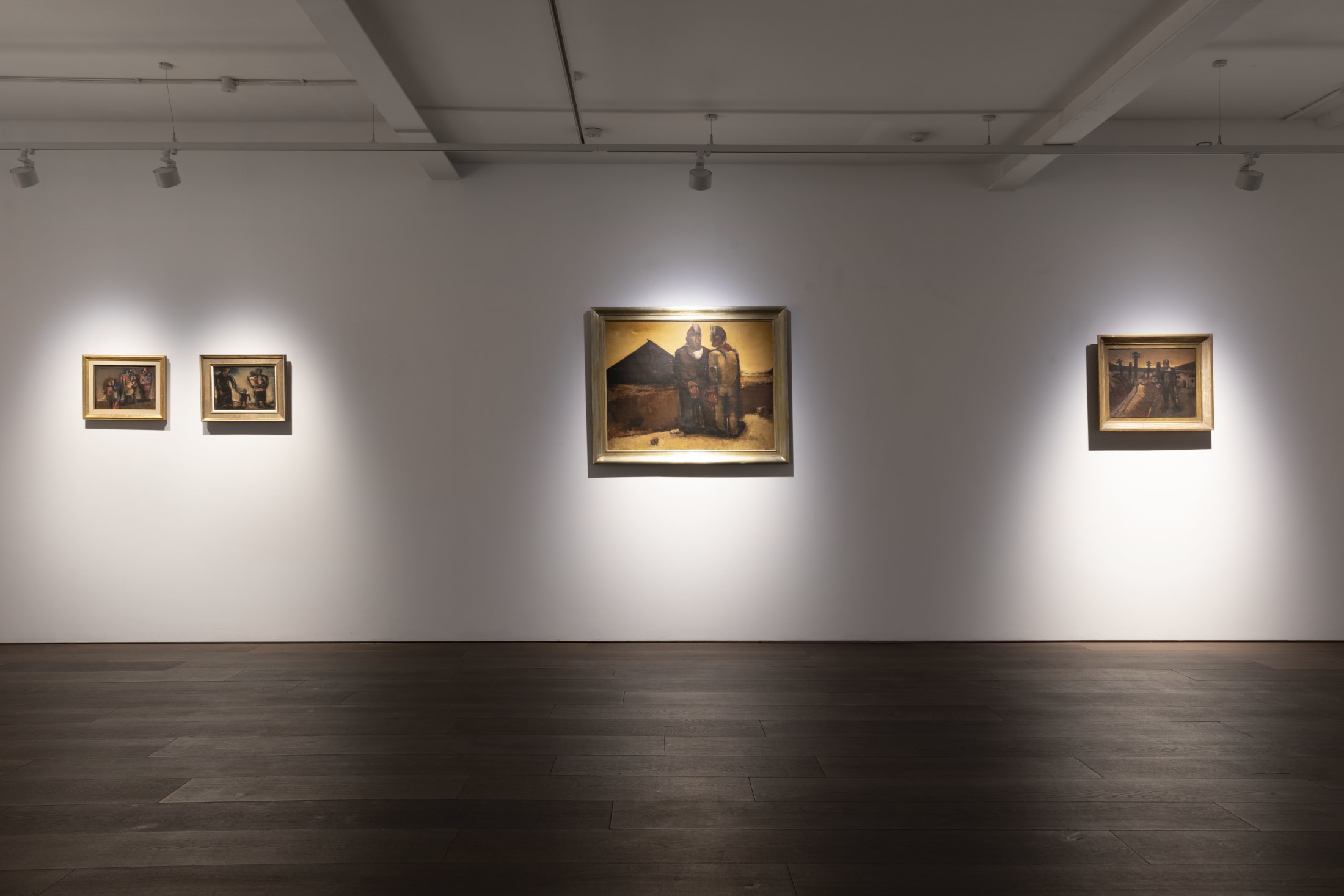
"Pyramids of black tips surrounded by cloud-like trees the colour of dark bottles. When the sun appears and gilds the air, the streets, otherwise uniform grey, become copper brown. This happens usually in the evenings, for the days are mostly behind a screen of slow rains, cold and blue like steel dust; the kind of rains that never promise to stop and awaken in you a feeling as hopeless as that arising when you are faced with many road on a lost track. To be truthful, I must add that only at the beginning did they awaken in me a feeling of impatient anger. Afterwards I discovered, to my own surprise, that the rains here are more than part of the general atmosphere. It is the rain that weaves the strange tapestry of mood in which here finds its order."
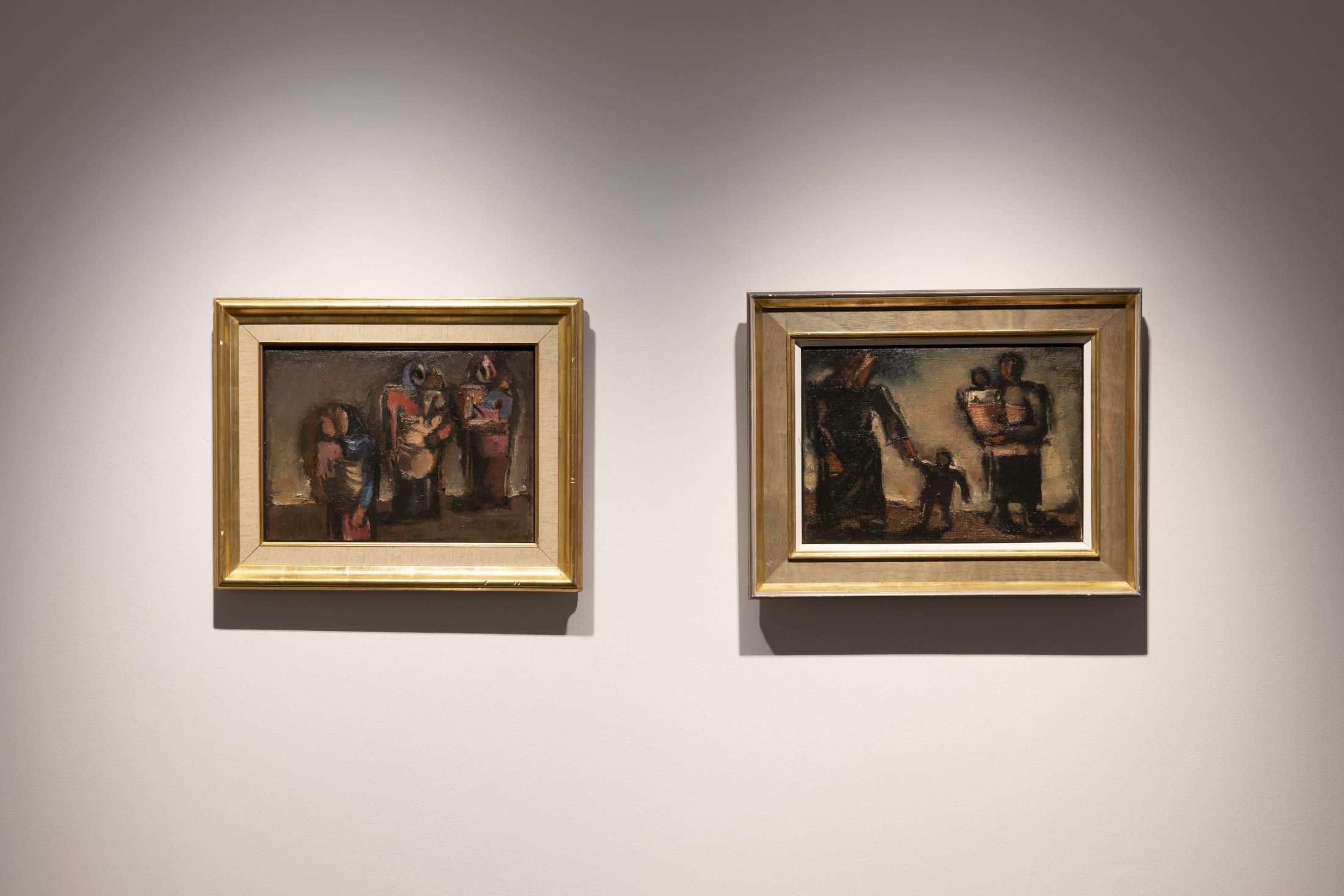
From their very postures one can sense a world of silent expression. But more important than their shapes or their faces, their whole bodies express a kind of transcendental declaration of human independence. With the greater mechanism of agriculture, depersonalisation will spread here too: but it has not yet done so, and many worthwhile values remain. Here man is not a lost boy nor woman a painted doll. Living and working is common to both sexes. Both men and women dress for the job.
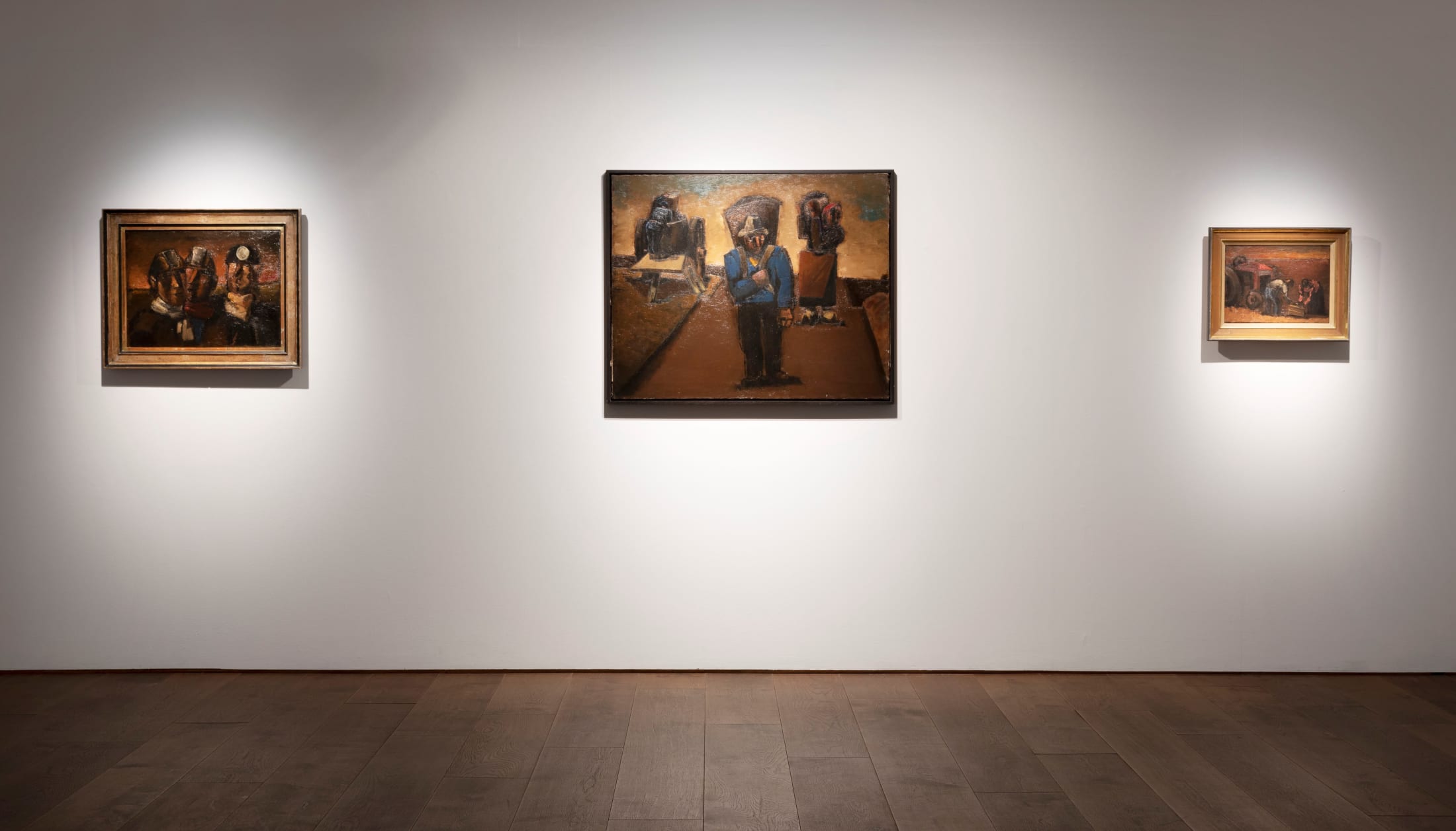
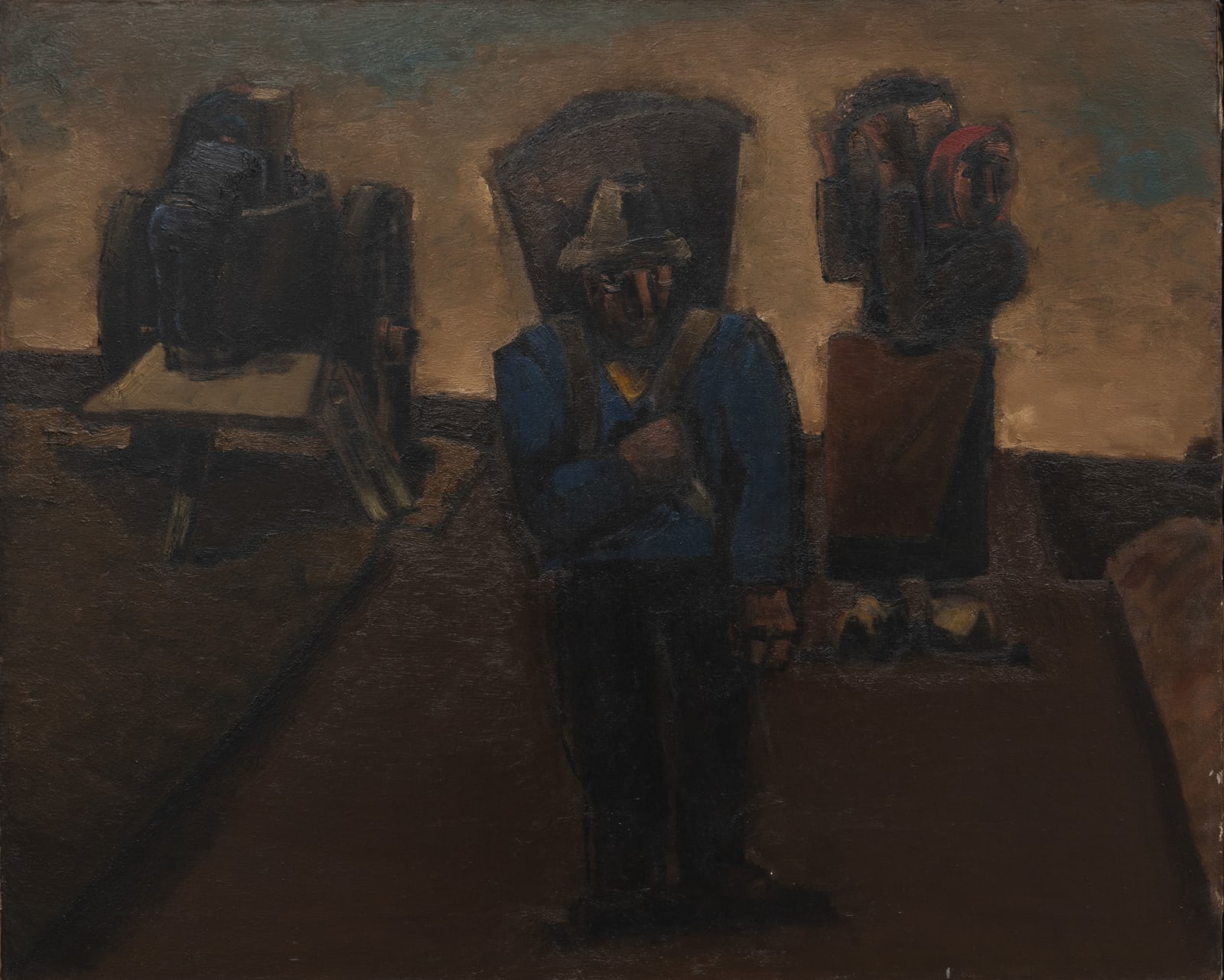
Josef Herman
34 1/4 x 42 1/2 in
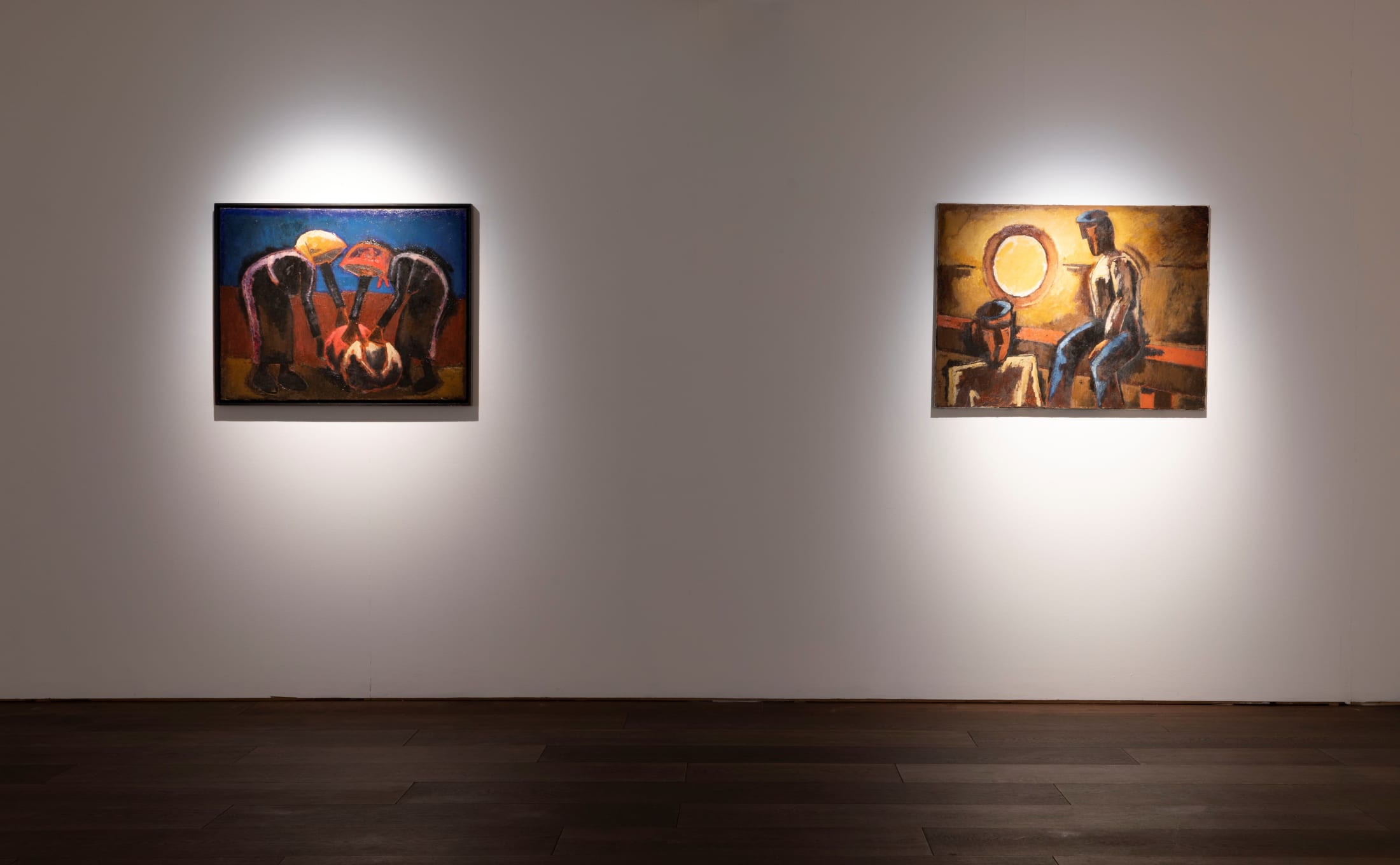
"Realism has always irritated me; it is so much less than reality. It lacks what nature has in abundance: the power to move our feelings to such a degree that we rush to our brushes for relief! Realistic painting never does this to me. There is more to a miner or a peasant standing and doing nothing than meets the eye… When I look at things I see them like everyone else does; but when I close my eyes and try to recall them from memory, a great change occurs. Nature is so many fragments. What I see with my eyes closed is a simplified image, deep, synthetic, and in form it has the grandeur of a symbol; in that final symbol I also recognise the unity of my direction."
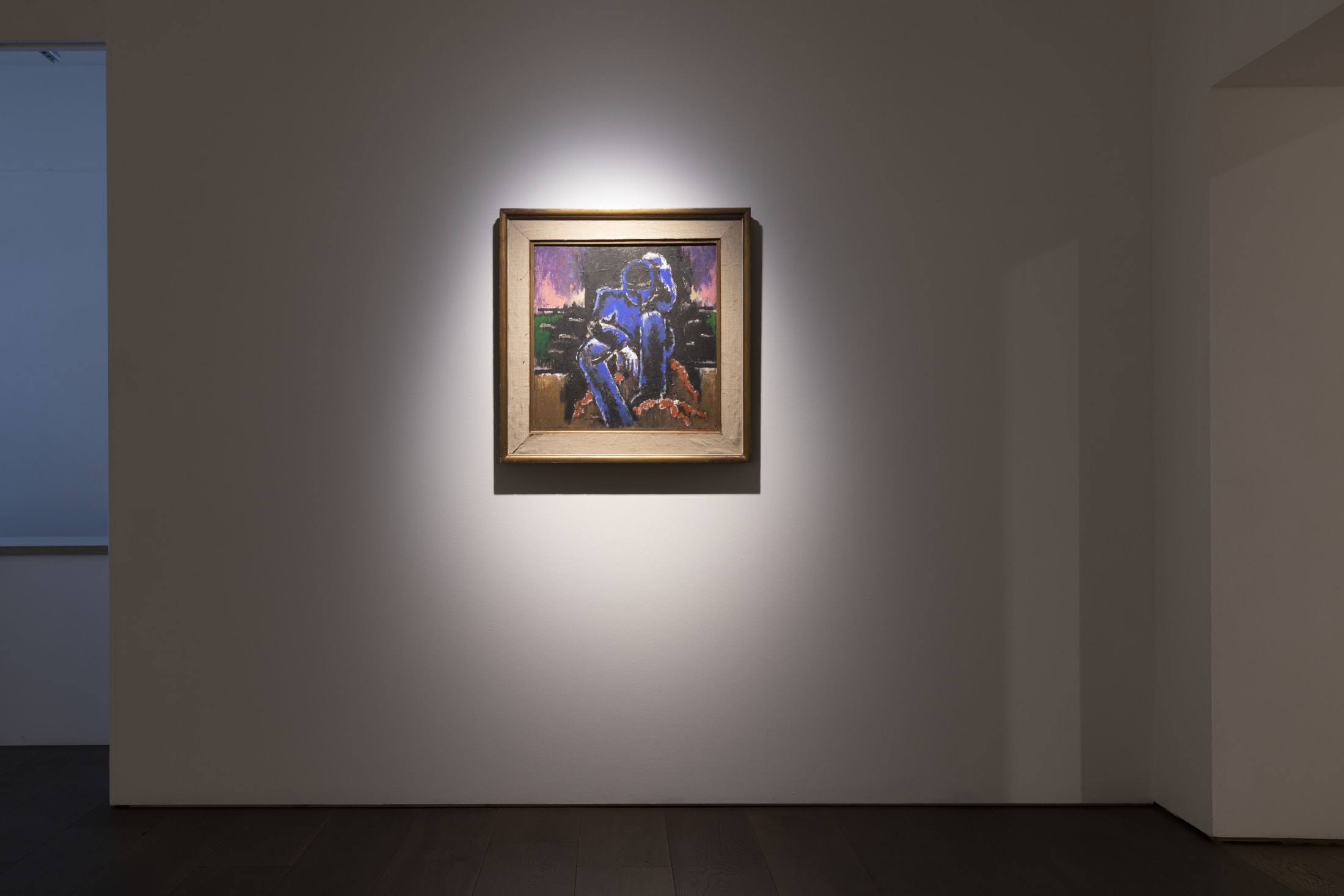
"In all my travels I have never looked for a ‘promised land’, and for me, to leave a place requires no earth-shaking decision. Like a seasonal labourer, the work done I move on. With gratitude I say goodbye to friends of short standing and take with me different degrees of nostalgia and the usual pain of saying adieu. Every human being possesses something of value that is worth sharing. And so do places.
I have had a strong desire to stay away from big cities and the art accumulated in museums. I have wished to be with people who work with their hands and who use their brains to direct their hands to give them purpose; I have wanted to talk with such people about ordinary things and understand why and in what way such things matter. In all my travels it was always the small places which nourished my soul."
For further information, please enquire below.
Shop
